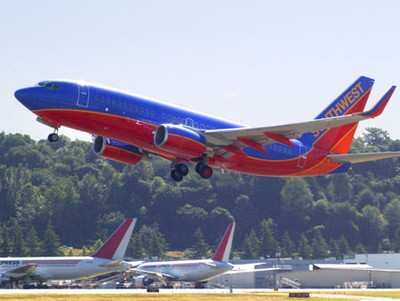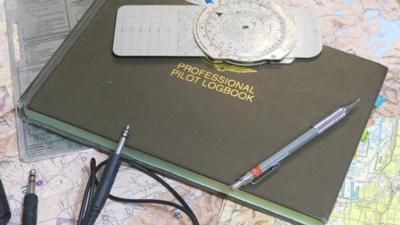… By Half
In a move certain to elicit ire from pilot unions and the traveling public, Southwest Airlines is reducing the flight experience requirements prospective new-hire pilots must meet in order to be eligible for employment with the airline.

Formerly, Southwest required pilot applicants to have logged at least one-thousand-hours at the controls of turbine-powered aircraft. However, a message sent by the airline to its pilots reportedly sets forth that effective 07 February 2023, Southwest’s company website will state the carrier “prefers” its pilot applicants to have five-hundred-hours of turbine time—fully half the previous requirement.
"Our robust and rigorous flight operations training program has not changed, and all current and future first officer candidates must pass all elements of the curriculum prior to flying for Southwest," the airline contended. "As this recruiting change is aligned with hiring at or above FAA requirements, we’ll continue selecting competitively-qualified, world-class aviators who demonstrate extensive flight experience, professionalism, and Southwest’s values."
Ironically, in an email statement to a national news outlet, Southwest Airlines disclosed that it had exceeded its 2022 hiring goal and was on track to meet its expanded 2023 air-crew staffing goal.
The announcement of Southwest’s diminished new-hire pilot standards comes only five months after the Republic Airways invoked criticism for petitioning the Federal Aviation Administration (FAA) to halve the Airline Transport Pilot (ATP) flight time requirements for graduates of its Leadership In Flight Training (LIFT) Academy—a Part 141 flight-school operated by the Indianapolis-based air-carrier.
Eligibility for Airline Transport Pilot (ATP) certification—the highest level of pilot certification granted by the FAA—is predicated upon myriad factors, including an applicant’s having logged a minimum of 1,500 flight-hours. All part 121, and most Part 135 air-carriers require their pilots to hold ATP certification.

For purpose of expediting pilot hiring, Republic Airways argued in favor of the FAA’s reducing airman flight-hour minimums. Citing military training orthodoxy and flight-time requirements, the air-carrier prevailed upon the agency to lower the flight-experience requirement of LIFT academy graduates to 750-cockpit hours—the mark at which U.S. military branches consider their pilots sufficiently skilled to be turned loose in taxpayer-owned aircraft. Republic, by inference, purports the flight-training provided by its LIFT Academy is the equal of military training.
The FAA, in a rare and blessed instance of circumspection, rejected Republic’s claims, stating that even if a reduction of the type requested by the air-carrier didn’t constitute a clear hazard to public safety, Republic’s request for such an exemption was an inappropriate means by which to catalyze such sweeping and foundational change to longstanding Federal Aviation Regulation.
In its decision, the FAA asserted: “After full consideration of Republic’s petition for exemption and the public comments, the FAA has determined that the relief requested is not in the public interest and would adversely affect safety.”
Stooping to the basest device of contemporary contention, Republic invoked racism as rationale for its request, spuriously alleging that high academic, temporal, and financial barriers to the piloting profession—essentially, the flight time requirement—were nigh insuperable to minority groups.
By way of retort, the FAA wrote: “The FAA disagrees that the reduction of ATP flight-hours will address (1) a perceived pilot shortage, (2) reduced commercial aviation services to small communities, or (3) recruitment within diverse talent pools.”
 Classic Aero-TV: Remembering Bob Hoover
Classic Aero-TV: Remembering Bob Hoover ANN FAQ: Follow Us On Instagram!
ANN FAQ: Follow Us On Instagram! ANN's Daily Aero-Linx (05.15.24)
ANN's Daily Aero-Linx (05.15.24) ANN's Daily Aero-Term (05.15.24):Altimeter Setting
ANN's Daily Aero-Term (05.15.24):Altimeter Setting Aero-News: Quote of the Day (05.16.24)
Aero-News: Quote of the Day (05.16.24)




